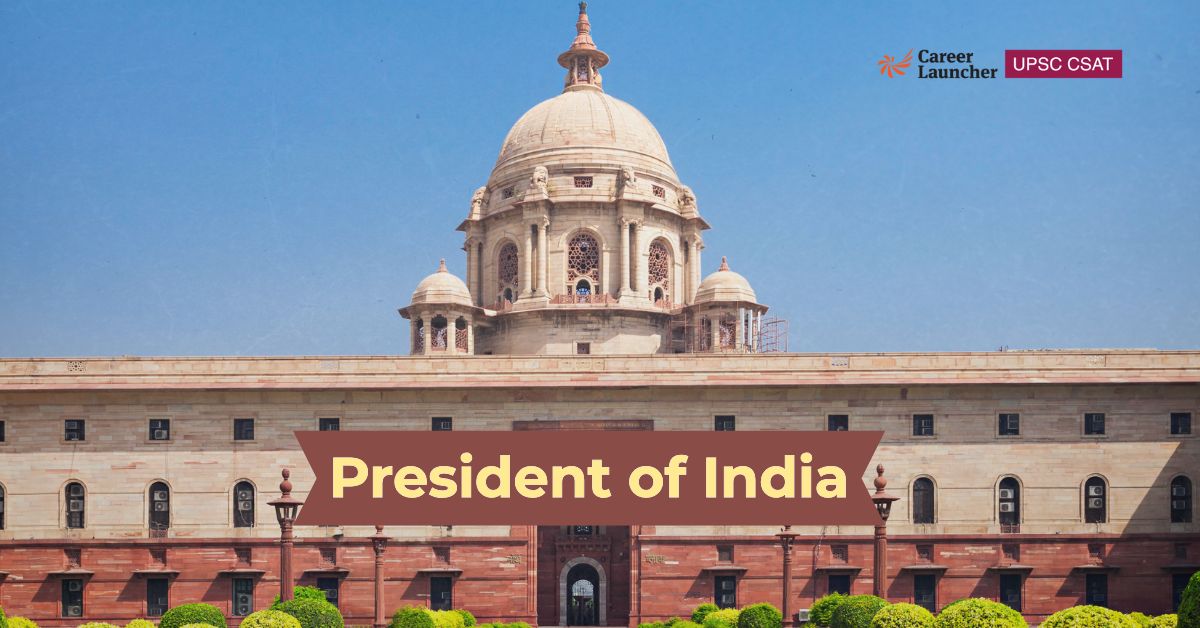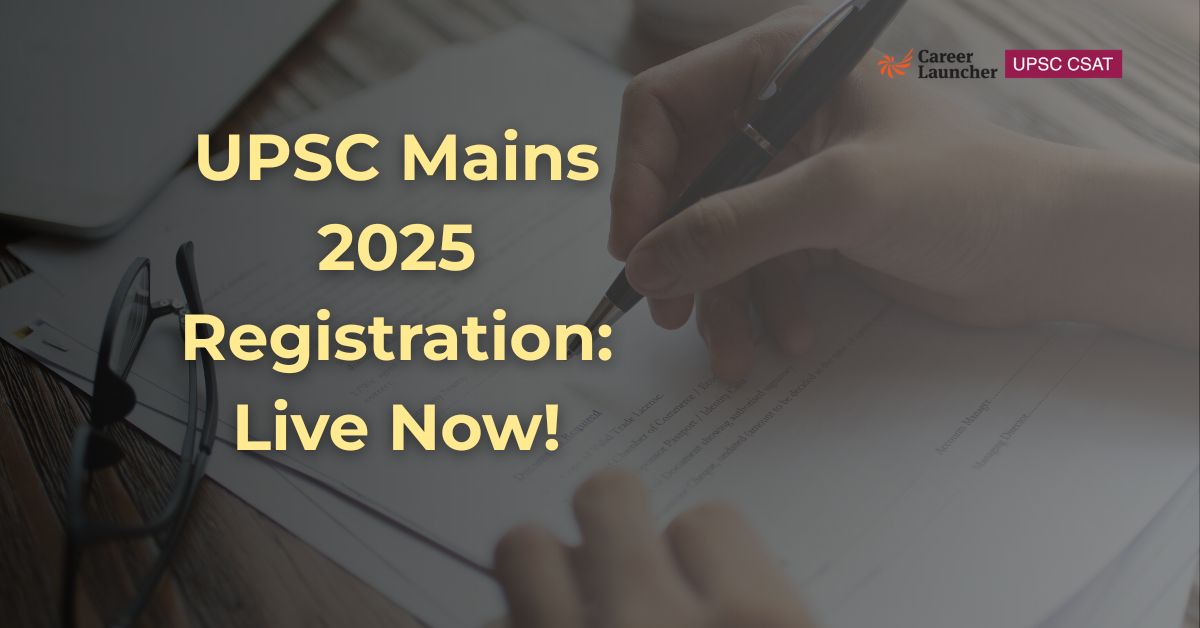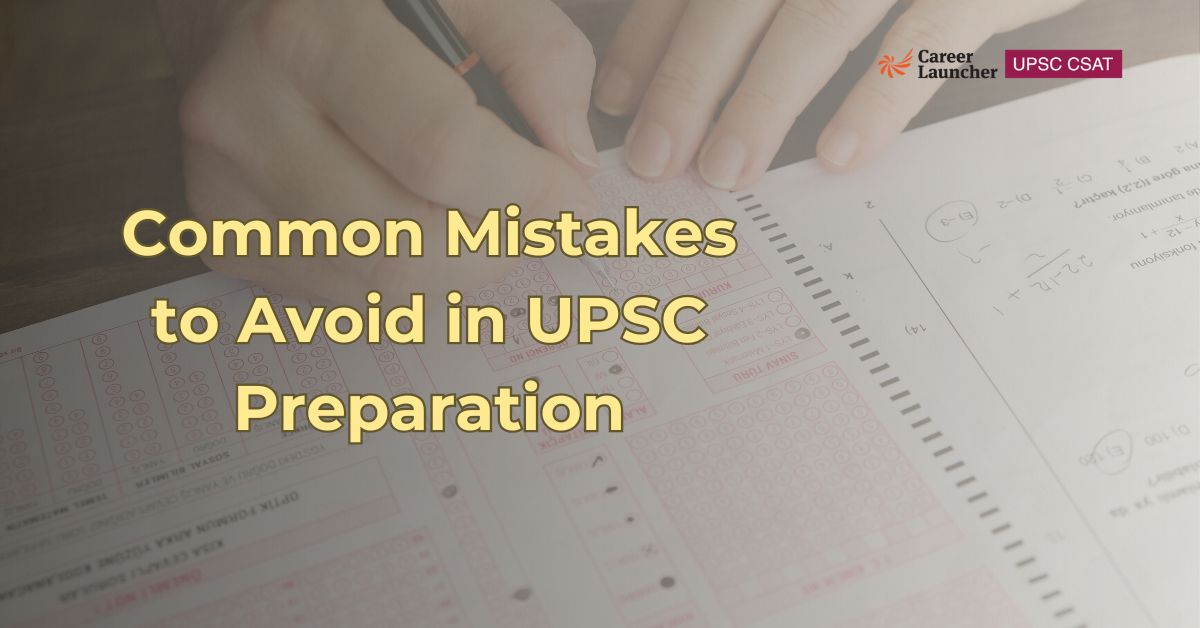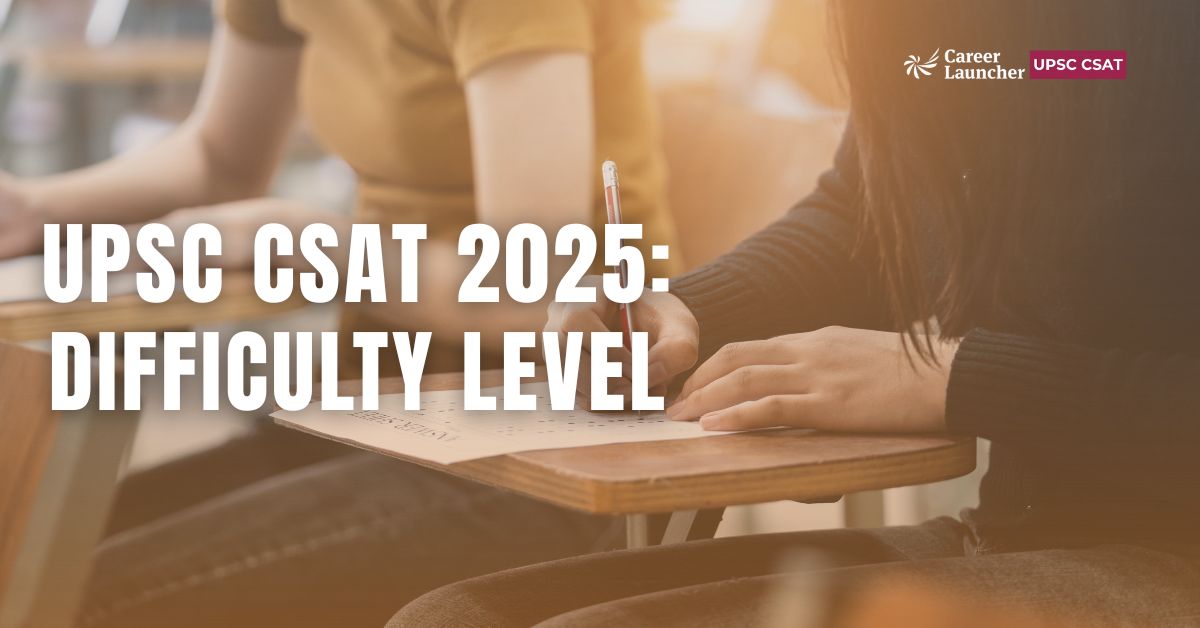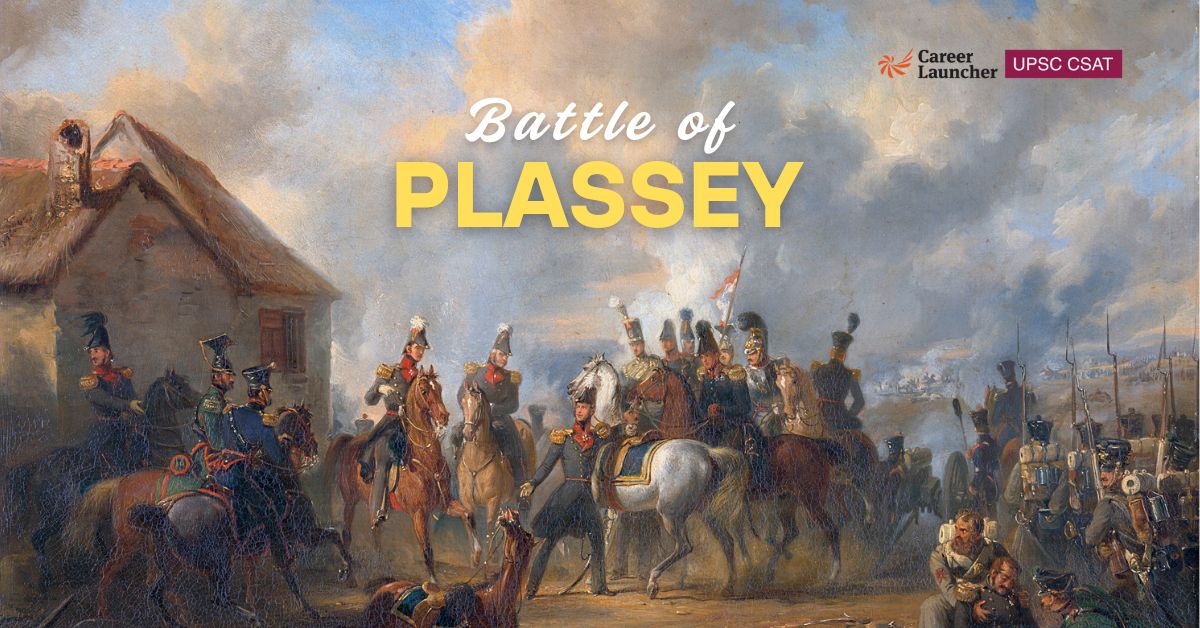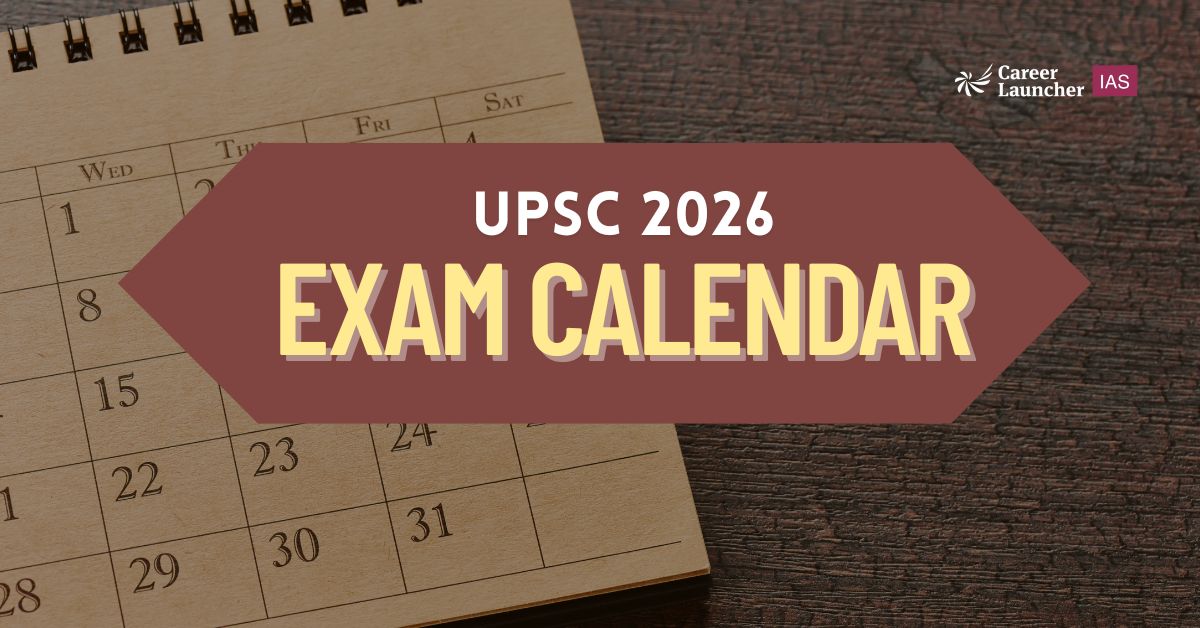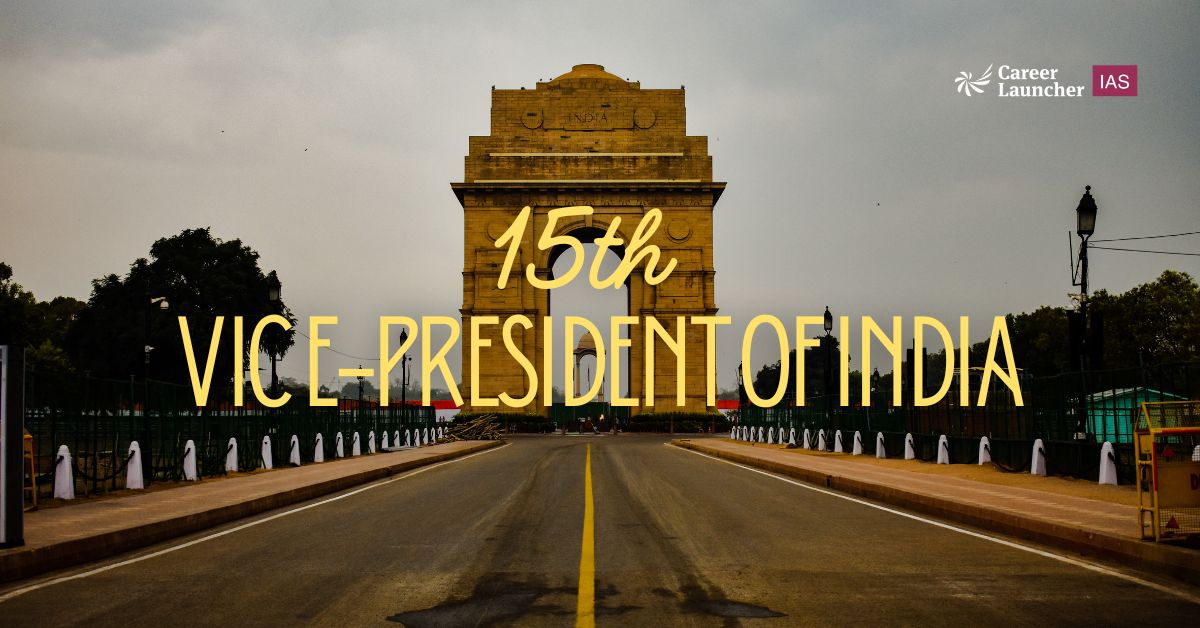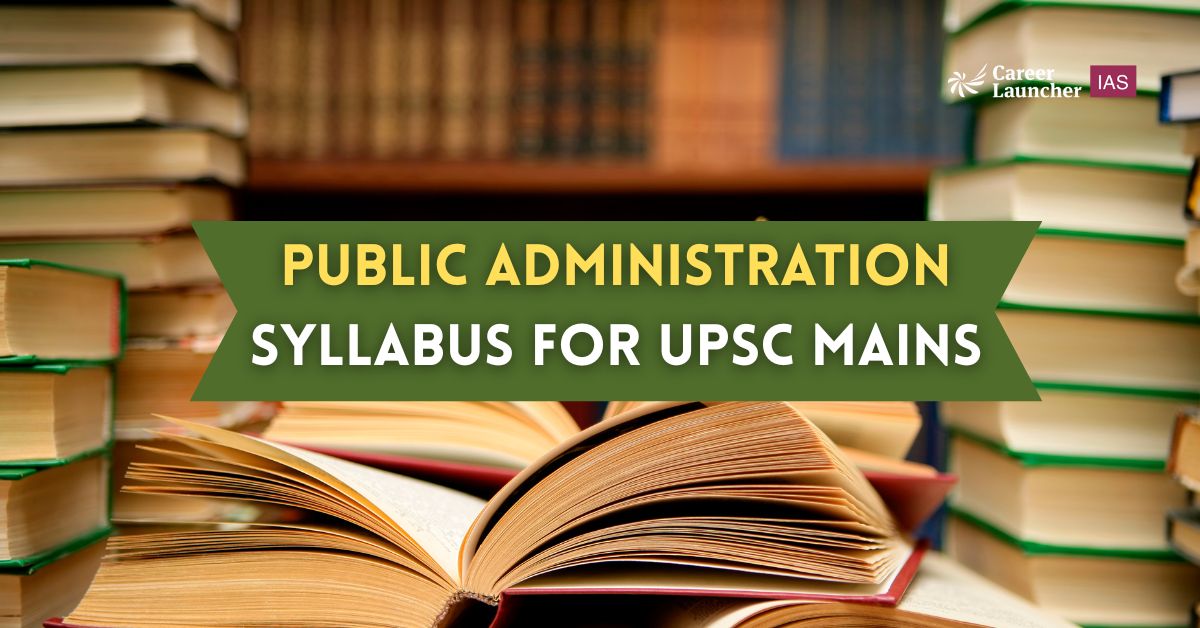The President of India is the head of the Indian state and is also the first citizen of India. Article 52 of the Indian Constitution states that there shall be a President of India. The incumbent President of India is Smt. Droupadi Murmu, the 15th President of India.
The President is an integral part of the Union Executive, along with the Vice-President, Prime Minister, Council of Ministers, and Attorney General, and hence, is extremely important for the UPSC exam. Read on to know detailed information about the election of the President of India, and the articles of the Constitution related to the same.
Table of Contents
President & Presidential Election in India: Important Articles
The President is the symbol of the solidarity, unity, and integrity of a nation. Following is a list of all the important articles related to the President of India. These might be asked in the UPSC exam and other government exams.
| Article |
Description |
|
Article 52 |
States that there shall be a President of India. |
|
Article 53 |
Defines the Executive Power of the Union. |
|
Article 54 |
Specifies that the electoral college is responsible for electing the president. |
| Article 55 |
Specifies the manner of election of the President |
|
Article 56 |
Defines the term of office of the President as 5 years from the date of assuming office |
|
Article 57 |
Allows a president to be re-elected any number of times |
|
Article 58 |
Lists the qualifications required to be elected as President |
|
Article 59 |
Lists the conditions of service and restrictions on the President while in office |
|
Article 60 |
Establishes the oath or affirmation to be taken by the President. |
|
Article 61 |
Lists the process for the impeachment of the President. |
|
Article 62 |
It outlines the provisions for holding elections to fill the vacancies in the office of the President of India. |
|
Article 70 |
Deals with the discharge of the President’s functions in other contingencies. |
|
Article 71 |
Deals with matters relating to the election of a President or Vice-President. |
|
Article 72 |
Gives the President the power to grant pardons, etc., and to suspend, remit, or commute sentences in certain cases. |
|
Article 74 |
Mandates the Council of Ministers to aid and advise the President. |
|
Article 75 |
Deals with the appointment, tenure, and responsibilities of Ministers. |
|
Article 87 |
It mandates a special address by the President to both Houses of Parliament assembled together at the commencement of the first session after each general election to the House of the People. |
|
Article 123 |
Grants the President the power to promulgate ordinances during the recess of the Parliament. This means that the President can make laws when neither house of Parliament is in session. |
|
Article 143 |
Gives the President the power to consult the Supreme Court on legal matters. |
|
Article 352 |
It gives the President the power to proclaim a National Emergency in the event of war, external aggression, or armed rebellion. |
|
Article 356 |
Gives the President the power to impose President’s Rule on a state under certain conditions. |
|
Article 360 |
Enables the declaration of Financial Emergency. |
Related Article – UPSC Exam Calendar 2026
Presidential Election in India
The Presidential Election in India takes place via the single-transferable voting system. The President of India is elected indirectly by an electoral college consisting of elected representatives who form governments after being elected in the state assembly and national elections. The nominated members of both houses and state legislatures are not allowed to vote in the Presidential Election. Hence, the electoral college of the Presidential Election consists of:
- Elected Members of the Lok Sabha and Rajya Sabha
- Elected Members of the Legislative Assemblies of the states
- Legislative Assemblies of the Union Territories of Delhi and Puducherry (Since 1992 through the 70th Constitutional Amendment Act)
Nominated members of Parliament or state legislative assemblies are not part of the electoral college.
Article 54 mentions that there will be an election for the President of India.
✓ An electoral college composed of the elected members of both Houses of Parliament and the elected members of the Legislative Assemblies of the states will be responsible for the election.
✓ This means that the President is not elected directly by the citizens, but rather by representatives chosen by the people.
Article 55 states the manner of election of the President. It states that:
✓ The President is elected indirectly by the electoral college.
✓ The election shall be held by a secret ballot.
✓ The election shall be held in accordance with the system of proportional representation by means of a single transferable vote.
Value of Vote of MP and MLA in the Presidential Election in India
The value of the vote of each MP and MLA differs in accordance with the number of members in their respective legislative bodies. Each elector’s vote carries a different weightage/ value.
The general principle is that the total number of votes cast by Members of Parliament equals the total number of votes cast by State Legislators. Also, legislators from larger states cast more votes than those from smaller states.
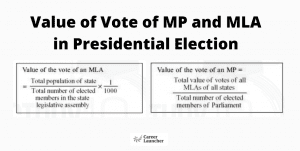
Process of President Election in India
1. Nomination
The nomination of a candidate for election to the office of the President must be subscribed by at least 50 electors as proposers and 50 electors as seconders. Each candidate must make a security deposit of ₹15,000 (approximately US$210) in the Reserve Bank of India. The security deposit is liable to be forfeited in case the candidate fails to secure one-sixth of the votes polled.
2. Election Process
The election is held in accordance with the system of proportional representation by means of the single transferable vote (STV) method, wherein the preferential voting system is followed. It takes place by a secret ballot system. The electoral college for the Presidential Election comprises elected members of the Lok Sabha, Rajya Sabha, and State Legislative Assemblies of all states, Delhi, and Puducherry.
Important Points – President of India
The following are some important points that are frequently asked in the UPSC exam about the President and the Presidential Election.
|
President of India: Key Facts |
|
| Eligibility to hold the office of President of India |
|
| Term of Office of the President of India | Once elected, the President holds office for five years. |
| Oath administered by: | The Chief Justice of India |
| Resignation submitted to: | The Vice President of India |
| Re-election | A person is eligible for re-election to the office of President. |
| Disputes regarding the Election of the President are decided by | The Supreme Court of India |
| Immunities Enjoyed by the President |
|
| Impeachment |
|
Impeachment Process of the President of India
The impeachment process of the President of India is a quasi-judicial process. Article 61 describes the process of impeachment of the President of India:
- The President can be removed from office by the process of impeachment, only on the grounds of violation of the Constitution.
- The impeachment process can be initiated in any house of the Parliament by levelling charges against the President.
- All members of Parliament (elected & nominated) take part in the impeachment process.
- The notice bearing the charges against the President must be signed by at least a quarter of the members of the House.
- Then, the notice is sent to the President of India, and the impeachment process starts within 14 days.
- The resolution to impeach the President must be passed by a special majority (two-thirds) in the originating house.
- Next, it is sent to the other house for consideration. The other house acts as the investigating house and investigates the charges levelled against the President.
- During the process, the President of India has the right to defend himself through authorised counsel. He can either choose to do so himself or appoint any person, lawyer, or the Attorney General of India to do so.
- After the investigation by the select committee, if the other house also passes the resolution by a two-thirds majority, the President of India stands impeached.
Presidents of India List- First President of India, India’s First Woman President, Current President of India
The Presidents of India list from 1947 to 2025 is as follows. India has had 15 presidents of India since its independence in 1947. The first president of India was Dr. Rajendra Prasad, who served from 1950 to 1962. India’s first woman president was Pratibha Devisingh Patil, who held office from 2007 to 2012. Droupadi Murmu is the current president of India. She is the 15th president of India and the second woman to become president.
|
List of Presidents of India |
||
| S.No | Name | Tenure |
| 1st President of India | Dr. Rajendra Prasad | 26 Jan 1950 – 13 May 1962 |
| 2nd President of India | Dr. Sarvepalli Radhakrishnan | 13 May 1962 – 13 May 1967 |
| 3rd President of India | Dr. Zakir Husain | 13 May 1967 – 3 May 1969 |
| Acting President | V. V. Giri | 3 May 1969 – 20 July 1969 |
| Acting President | Mohammad Hidayatullah | 20 July 1969 – 24 Aug 1969 |
| 4th President of India | V. V. Giri | 24 Aug 1969 – 24 Aug 1974 |
| 5th President of India | Fakhruddin Ali Ahmed | 24 Aug 1974 – 11 Feb 1977 |
| Acting President | B. D. Jatti | 11 Feb 1977 – 25 July 1977 |
| 6th President of India | Neelam Sanjiva Reddy | 25 July 1977 – 25 July 1982 |
| 7th President of India | Giani Zail Singh | 25 July 1982 – 25 July 1987 |
| 8th President of India | R. Venkataraman | 25 July 1987 – 25 July 1992 |
| 9th President of India | Dr. Shankar Dayal Sharma | 25 July 1992 – 25 July 1997 |
| 10th President of India | K. R. Narayanan | 25 July 1997 – 25 July 2002 |
| 11th President of India | Dr. A. P. J. Abdul Kalam | 25 July 2002 – 25 July 2007 |
| 12th President of India | Pratibha Patil | 25 July 2007 – 25 July 2012 |
| 13th President of India | Pranab Mukherjee | 25 July 2012 – 25 July 2017 |
| 14th President of India | Ram Nath Kovind | 25 July 2017 – 25 July 2022 |
| 15th & Current President of India | Droupadi Murmu | 25 July 2022 – Present |
This is a brief overview of the Presidential Election for the UPSC Civil Services Examination. To read more, you can refer to the articles below.
|
Academic Articles for UPSC Preparation |
||
| Article 21 | ||

